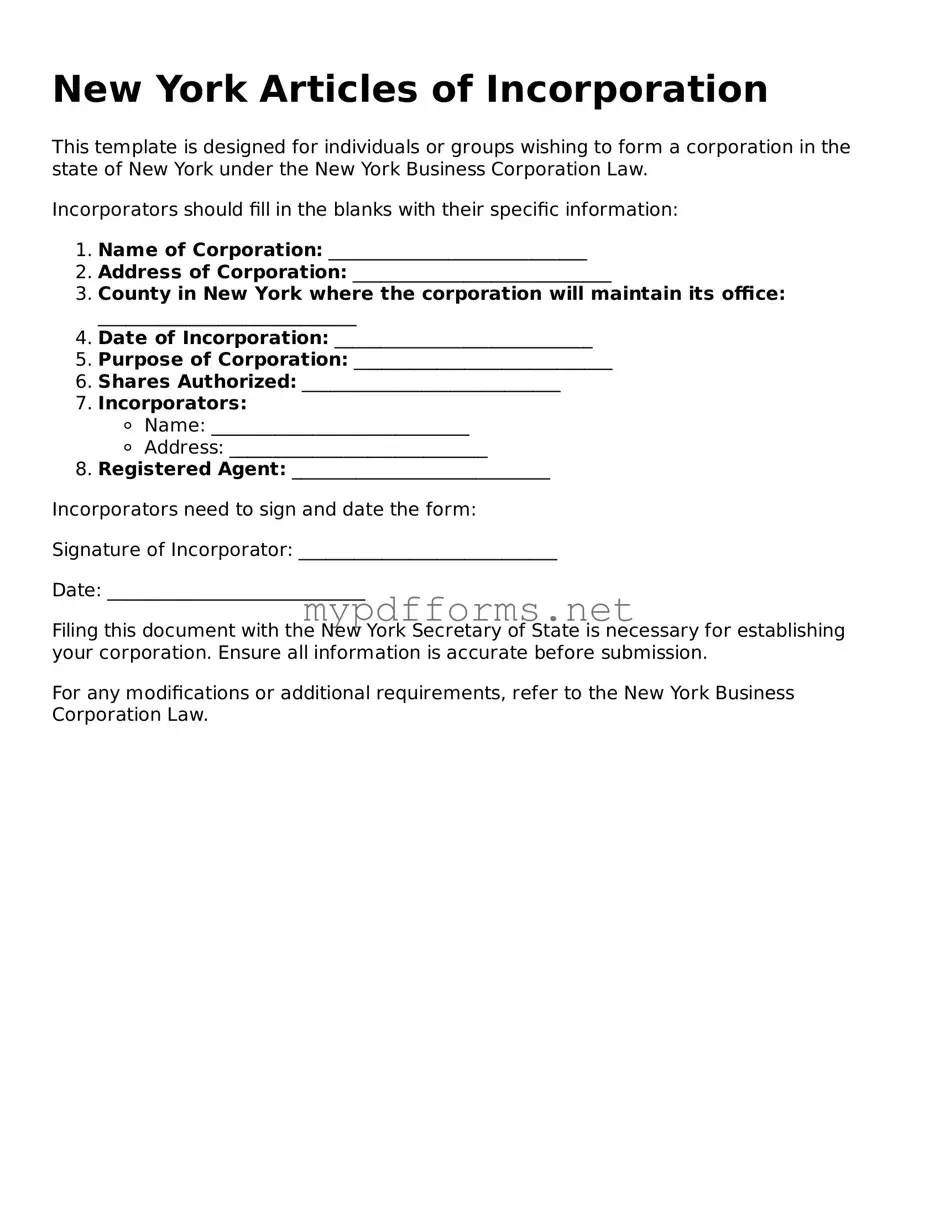Attorney-Verified Articles of Incorporation Document for New York
The New York Articles of Incorporation form is a legal document that establishes a corporation in the state of New York. This form outlines essential information about the corporation, including its name, purpose, and structure. Completing this form is a crucial step for anyone looking to formally create a business entity in New York.
Ready to get started? Fill out the form by clicking the button below.
Modify Document Here

Attorney-Verified Articles of Incorporation Document for New York
Modify Document Here

Modify Document Here
or
⇓ PDF
Need to check this off quickly?
Edit and complete Articles of Incorporation online in just a few steps.